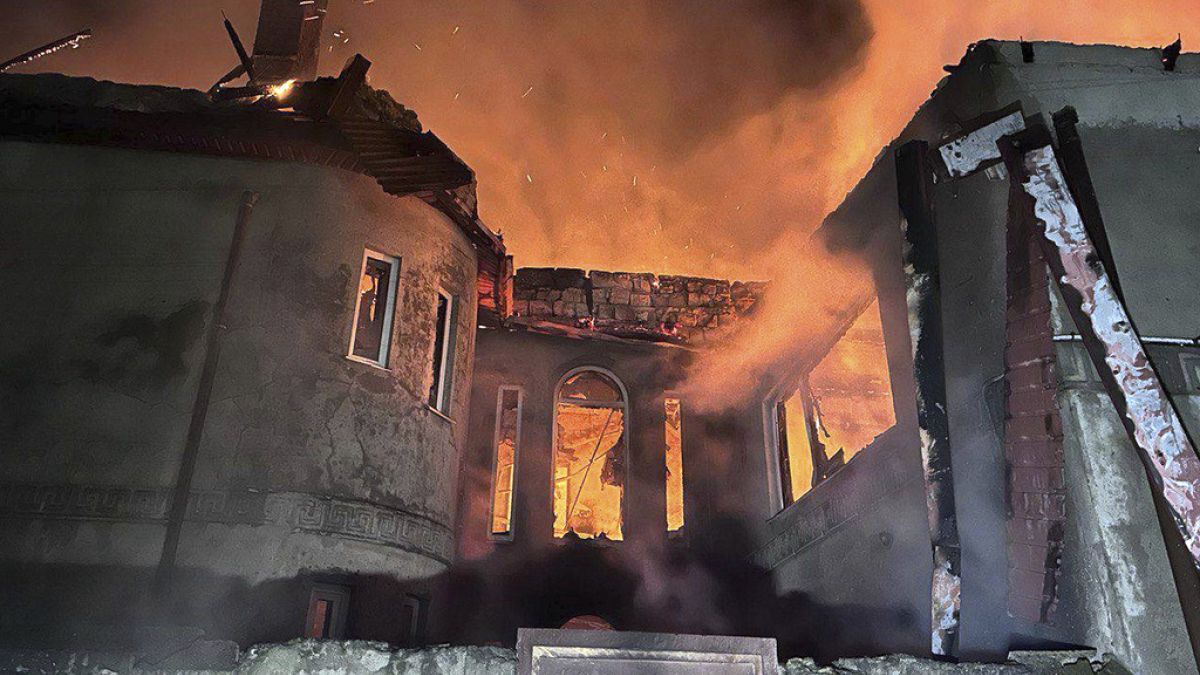In October, Russia launched around 2,000 drones at Ukraine, a third more than the previous month, declared the UK Defence Ministry on Friday. The intensified aerial campaign by Russia saw targeted attacks on parts of Ukraine, causing severe damage and injuries. A 500-kilogram glide bomb damaged a high-rise apartment building in Kharkiv, injuring at least 25 people. In the capital Kyiv, falling wreckage from intercepted missiles also caused injuries. The Ukrainian air force reported that a total of 92 drones and five missiles were fired at Ukraine, with some intercepted and jammed electronically.
The attacks highlighted Russia’s superior air power, which it has been using to target civilian areas in Ukraine over the past three years. More than 10,000 Ukrainian civilians have lost their lives in the conflict, according to the United Nations. Ukrainian President Zelenskyy appealed for more international help to combat Russia’s military aggression. However, doubts have arisen about the level of support Ukraine can expect from the newly elected US President, Donald Trump. Zelenskyy emphasized the need for decisive action at the international level to protect the Ukrainian people and achieve a just peace.
In response to Russia’s aggression, Ukrainian drones targeted an oil refinery in the Russian city of Saratov. The city hosts the Saratov Oil refinery, operated by Russian company Rosneft. The Russian Defence Ministry reported that a total of 17 Ukrainian drones were destroyed and intercepted, with six reportedly shot down over Saratov. The escalating drone attacks on both sides indicate the ongoing conflict and tensions between Ukraine and Russia.
The use of glide bombs by Russia in the attacks on Ukraine has raised concerns due to the devastating impact they have on targeted areas. Glide bombs are known to obliterate their targets, generating powerful shock waves and leaving wide craters behind. Ukraine currently lacks effective countermeasures against these bombs, making it more challenging for them to defend against such attacks. The injuries and damage caused by these indiscriminate attacks highlight the urgent need for international support for Ukraine in the face of Russia’s military aggression.
The situation in Ukraine remains volatile as Russia continues to escalate its attacks on civilian areas, causing casualties and widespread destruction. Ukrainian officials have raised alarms about the rising number of drone attacks and the use of advanced weaponry by Russia. The Ukrainian air force’s efforts to intercept and counter these attacks demonstrate their determination to defend their country against foreign aggression. The international community’s response to the conflict will play a crucial role in determining the outcome and restoring peace to the region.
In conclusion, the recent surge in drone attacks by Russia on Ukraine has intensified the conflict and raised concerns about the safety and security of civilians in the region. The use of glide bombs and other advanced weaponry poses a significant threat to Ukrainian civilians, who are already reeling from the devastating impact of the ongoing conflict. Ukrainian President Zelenskyy’s call for international support underscores the need for a united front against Russia’s military aggression. As the conflict continues to escalate, the international community must step up its efforts to provide assistance to Ukraine and help end the violence and bloodshed in the region.










